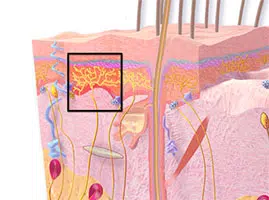 The Latin word terminatio came to Spanish as a termination . This is what the act and result of finishing or ending are called: conclude, finish, finalize.
The Latin word terminatio came to Spanish as a termination . This is what the act and result of finishing or ending are called: conclude, finish, finalize.
Completion, in this framework, is the final stretch of something or the last part of a process . It can also be about its closure, auction or consummation . For example: “The architect stated that there are only a few weeks left until the completion of the work, so the hospital would be inaugurated soon,” “I really like the finish of this piece of furniture, since the enamel layer gives it a shine.” special” , “The Croatian striker did everything right but failed to finish the play” .
The termination of the contract implies the cessation of the bond that united the parties. Contracts can be terminated in different ways: by legal mandate, by an agreement between the parties, for a just cause by one of the parties or unilaterally without just cause.
Take the case of the termination of an employment contract . The end of the relationship may be due to the expiration of the agreed period, which would make the cause legal; by decision of the employer in the event of serious and verifiable misconduct by the worker (just cause); or for a dismissal without justification ( unilateral , without just cause), to mention a few possibilities.
One of the words that is often used as a synonym for ending is term , which is in fact part of its family. Both are nouns, although the first is feminine and the last is masculine, and in some cases they can have the same meaning but the nuances that differentiate them are many.
According to the dictionary of the Royal Spanish Academy, both can be defined as the point or final part of a thing (in the case of termination it adds the possibility that it is the last part of a work), but the first meaning Termination refers to the action and effect of the verb terminate or its reflexive, terminate . Precisely, the suffix -ción usually expresses this idea of "action and effect" and is used in many nouns of Latin origin, such as lesson, function, recording and production .
 With respect to term, on the other hand, we do not speak of an action but rather of a point that represents the final end of a thing, whether its extension on the material or temporal plane. Other synonyms of the word termination are consummation, conclusion, end , denouement and closure ; Note how all of them denote the closure of an action that extends over time. Likewise, two of its most common antonyms are beginning and initiation .
With respect to term, on the other hand, we do not speak of an action but rather of a point that represents the final end of a thing, whether its extension on the material or temporal plane. Other synonyms of the word termination are consummation, conclusion, end , denouement and closure ; Note how all of them denote the closure of an action that extends over time. Likewise, two of its most common antonyms are beginning and initiation .
In the field of metrics , on the other hand, the letter that establishes the consonance or assonance of certain words with others is called an ending. For grammar , meanwhile, the ending is that letter that follows the radical of a word.
Nor should we forget about the nerve endings , which come in different classes. The free ones , for example, are the non-specialized ends of the afferents ( nerves that carry impulses from the sensory organs or receptors in the direction of the central nervous system); In other words, the information they carry goes to the brain from the periphery of the organism. They are found especially in the body of vertebrate beings and their function is to receive impulses in the skin to detect pain.
Merkel's so-called endings , on the other hand, are specialized. They are also found in the bodies of vertebrates, although in addition to the skin we can find them in the mucosa. Its function is texture and pressure detection.
